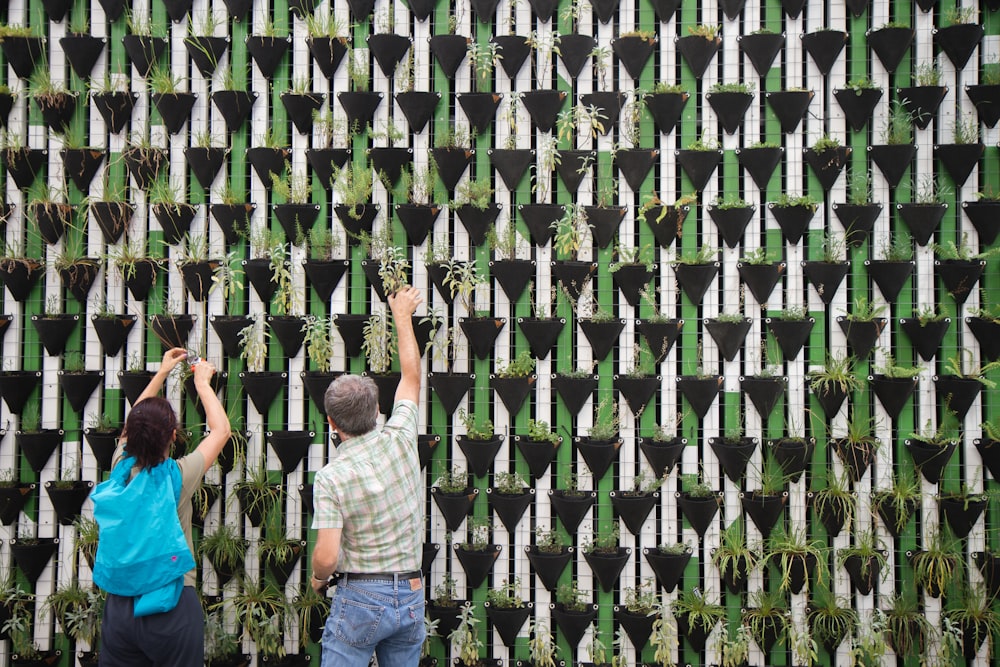5 min read
5 Sustainability Priorities For Building Product Manufacturers In 2022
![]() Ainhoa Rodriguez-Muguruza
:
26-May-2022 17:00:00
Ainhoa Rodriguez-Muguruza
:
26-May-2022 17:00:00

Understanding why building sustainability matters for the built environment will allow you and your building product brand to grow professionally and personally. The conversation has started, and it is not going anywhere. Here are the recent past, present, and future of what sustainability will bring for building product manufacturers.
In this blog, we look at the data on how building product manufacturers are facing the challenge of a greener sector and what this means for a building product business to be truly sustainable. Lastly, we will summarise the five key priorities to keep in mind for a sustainable built environment.
If you are interested in this topic, you can read other content pieces on building sustainability below:
- How To Sell Sustainable Construction Materials
- Socks and Sustainability: Optimising Your Sales Approach
- Why Sustainability Matters For Building Products Businesses
What Does Sustainability Mean for Building Product Manufacturers?
A report published by Constructing Excellence provided the construction industry with the first sector-specific and holistic definition of what it means for construction processes to be sustainable. Unlike broader definitions, they did not fall into easy buzzwords such as “green”, “eco-friendly”, “organic”, etc. but highlighted the most crucial element of a sustainable sector: commitment. And this was not a general commitment with the world but, as they called it, a “triple bottom line”.
Sustainability within the construction industry requires building product manufacturers to have a fierce commitment to certain economic, environmental, and social goals. These commitments involve a review of the processes through which materials are produced, used, and disposed, ensuring that these do not account for an excessive proportion of the energy and resources used by industrial sectors in the UK. In this case, commitment comes with a reward.
Sustainable Products Get Specified More
When we realised that the UK government is responsible for 40% of the construction happening in the country and that they have clear sustainability targets that they have been set for all construction happening in the public sector, the takeaway is clear. As more sustainable construction becomes a priority for the industry, specifiers will be looking for building product manufacturers that show a clear commitment to their products' sustainability. This is furthered by codes such as the Code of Construction Product Infomation (CCPI), which is an initiative that sets out to promote urgent positive culture and behaviour change in the approach and management of product information by the construction product manufacturing industry.
Sustainable CX Improves Customer Retention
Sustainability will not only make your brand more attractive to specifiers, but it will also make it more likely to be specified again. 87% of construction firms haver reported customer retention is a driving force for their sustainability focus. This is due to 4 out of every 5 companies having witnessed how customer expectations have become more sophisticated in the last years.
Sustainable Brands Have Happier Employees
The Environment Agency reported that 78% of employees would rather work for an ethical and reputable company than receive a higher salary. Yes! In fact, 67% of construction companies report their employees to be an important factor behind their sustainability efforts. There is a belief that sustainability will help building product businesses attract a new generation of workers, more concerned about the environmental and social practices in the workplace.
What Are Building Product Manufacturers Doing For A More Sustainable Industry?
In 2021, Frost and Sullivan conducted a survey-based report that analysed the strategies building product manufacturers, and construction leaders are currently implementing to make the industry more sustainable one step at a time. The results reflected that, whilst results are happening slowly, there is a clear interest in becoming greener. In fact, almost half of the companies surveyed reported sustainability to be an important part of the strategy.
When asked to building product manufacturers directly, the percentage of companies that considered sustainability an important part of their strategy was of 40%. The relevance conferred to sustainability grew proportionally when compared to the size of the company, with larger, resource-intensive companies being more considerate with their strategy and considering sustainability not only a key part of their future, but also a cornerstone part of their corporate strategy.
40% of construction firms had 2021 as the target year to become green companies
As reported in the 2018 Smart Market World Green Building Trends report, 2 out of every 5 construction firms had set 2021 as the year by which the majority of their projects would be greener. These initiatives were, in a way, encouraged by the thought that, as we get closer to 2025, regulations on sustainable processes will become stricter.
52% have improved their tech-stack in pursuance of more sustainable business models
The main concern of building product manufacturers remains improving the sustainability of the supply chain, particularly tricky to control due to a large number of suppliers and vendors involved in the production and delivery of building products. 35% of the building product manufacturers believed that more consultancy on how their tools are needed, whist 42% stated that simplifying the way data is captured and reported could help their sustainability efforts.
40% of construction firms believe financial constraints are hindering their sustainability efforts
Whilst sustainability strategies are often accompanied by words such as “cost-saving”, “cost-effective”, “resource-optimisation”, etc., a large part of the construction industry still thinks of sustainability as a cost-driver… Only 16% truly view these initiatives as a way of saving. This idea might be preventing companies with tighter budgets from establishing sustainability programmes that would contribute to a greener built environment.
5 Sustainability Priorities for Building Product Manufacturers in 2022
Following on the findings of the report Digital Sustainability: The Path to Net Zero for Design & Manufacturing and Architecture, Engineering, & Construction (AEC) industries, it is clear that the manufacturing industry is witnessing a swift digitalisation that is facilitating the implementation of strategies meant to enable sustainability and profitability. The report stated that digital tools will be key for supporting building product manufacturers to transform their business models.
This evolution comes from a paradigm shift that will remove the product from the centre and understand the manufacturing industry as dominated by a conversation about solutions and services. As a result, the report suggested trust, expectations, personalisation, and empathy, should remain inherent to the efforts building product manufacturers are making to contribute to a more sustainable built environment.
#1 Analysing the Life Cycle
Focusing on the exploration of methods to improve energy efficiency, waste minimisation, and the proposal of alternative materials, the conversation on the life cycle of products is among the main concerns of building product manufacturers. For 63% of the building product manufacturers surveyed, reducing energy consumption during production was among their top priorities, with most of them seeking for software solutions to help then achieve their sustainability goals.
#2 A Carbon Neutral Future
As the net zero goal of the EU Green Deal approaches, achieving a carbon neutral industry is a key element in the strategy of building product manufacturers. Whilst they are largely focused on energy optimisation during production, as stated above, it is foreseen that, as we get closer to 2025, the conversation on carbon neutral manufacturing will become more active. 38% of the manufacturers surveyed affirmed believing carbon neutral manufacturing will have a very strong impact in their strategy.
#3 More Strict Certification and Higher Compliance
With the introduction of UK-BREEAM and the US-LEED building rating systems in the early 2010s, it is more important than ever to have the data ready. But building certifications are not the only accreditations that building manufacturers are being required to have: safety, good health, and well-being are quickly becoming an imperative within an industry that has been thought to have neglected the safety in the workplace. Surveyed companies aim to drive this well-being with a focus on air quality and lighting!
#4 Circular Construction and Sustainable Design
The efforts of recycling and establishing a circular construction models have dominated conversations on sustainability, with design being one of the main focus. New ways of designing building products provides a framework and principles so these are manufactured in a simpler and cost-effective manner. With the use of DfMA, the industry of building product manufacturers has experienced a change that is far from ending!
#5 BIM, Digital Twins, and Smart Building Platforms
With a key focus on improving the ability build product manufacturers have to monitor, measure, and mange the processes that are involved in the production of their product, the evolution of BIM models is a topic to keep in mind. As BIM models start including digital twin solutions, building product manufacturers have been enabled to improve their environmental performance, manage in real-time the lifecycle of their products, and to offer an accurate and waste-less simulation of their assets.
About Insynth
At Insynth we deliver a predictable flow of leads, customers, and specifications for building product brands through our inbound marketing approach, proven to reach a technically demanding audience.
We use the latest marketing techniques such as construction inbound marketing, to equip building product companies to grow sustainability in this era of digital transformation.
As the only HubSpot certified agency to major in construction marketing. We have a proven formula of bringing a variety of functionalities together including CRM Implementation, Web Design, Sales Automation, SEO, and Email Marketing to achieve your ultimate aim: Growing your business and gaining new specifiers and customers.



